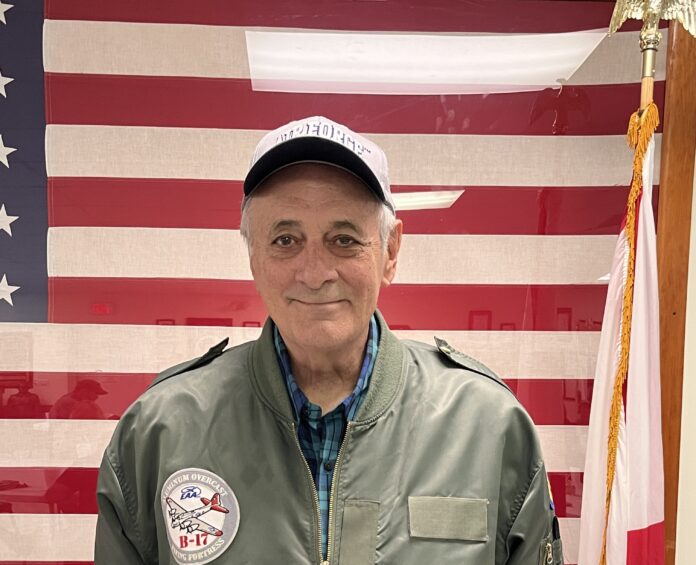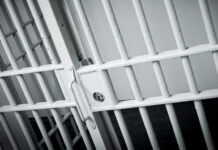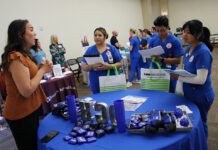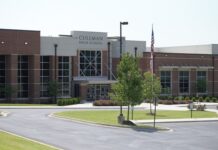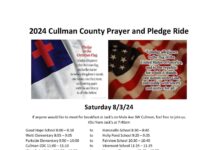In celebration of Veterans Day, Tribune reporter Cayla Grace Murphy sat down with veterans at Cullman’s Veterans of Foreign Wars Post 2214 for rapid-fire interviews. The Tribune will be publishing an interview every week in November.
Col. Ken Brown (retired)
United States Air Force, 1965-1991
Deployments: Vietnam, Tel-Aviv
CGM: What do you remember most about the day you enlisted?
KB: It was uneventful, I just knew when I got out of college I wanted to go in the Air Force and make it a career. So I enlisted; well, I didn’t enlist, I got selected to go to officer candidate school. I came in the Air Force and went directly to Lackland Air Force Base in San Antonio. I went through Officer Candidate School – my first assignment as a second lieutenant was strategic air command up in Michigan – and went from there.
CGM: Can you describe a funny moment from boot camp?
KB: It’s an abbreviated boot camp. It’s nowhere near as bad as the enlisted guys! It was 90 days. Why are we focusing on boot camp? Oh, I don’t remember anything really funny about it (laughs); it was a lot of pushups and running and getting in shape, a lot of people screaming and yelling in your face. I think the (most fun) time was drinking at the Officer’s Club, which we were now allowed to go to, after we graduated! Then we were scattered to the four winds and off on our own experiences.
CGM: What are some things you remember most about your deployments?
KB: Well, the first deployment was to Vietnam for a year. That was probably the worst year to be in Vietnam, when Tet happened – the Communist Tet Offensive. I flew in support of the Marines up in Khe Sanh. You probably won’t know any of this, but Khe Sanh was a Marine Corps base that was in the northern part of Vietnam that was completely surrounded by the enemy. We had to fly in and drop them supplies and provide air support to keep the bad guys from overrunning them. Then we had the Tet Offensive where they attacked our base, but the base that I was at, Da Nang, was rocketed just about every night. We lost a lot of good people in those attacks. It was kind of a grim year. I was only in the military for two years when I went to Vietnam, never had been overseas before.
The second deployment I did was when I was captain, down to Tel Aviv, Israel, during the 1973 mid-east war (1973 Arab-Israeli War). I was an intelligence officer and my job was to brief the aircrews about what the threat was going down and coming back from Israel. I was down there for a couple of weeks with the Israelis on the ground, in Tel Aviv, 50 years ago, right now, today. (Author’s note: this interview was recorded Oct. 17, 2023). History is repeating itself.
CGM: Do you have any advice for people transitioning back to civilian life?
KB: I’m very honored to be here as a member of the VFW, and be in the company of the guys who are the real heroes, which I don’t consider myself to be. It’s one thing to be on a base, getting three square meals a day and sleeping in a bed, as opposed to being out in the field, seeing your buddies getting killed next to you, getting shot at up close like a lot of these guys were. It was a different type of experience for me than it was for a lot of these guys.
If you don’t belong to the VFW, or the DAV or the American Legion, you really should. We have to keep our numbers up to lobby Congress for continued benefits for all these kids who are coming back from combat zones with PTSD or other conditions that need to be taken care of. I mean, it’s $30 a year. Get involved. Get off the couch, come in, you know? Be a part of it. It’s a band of brothers and sisters. We don’t just sit around and talk about war stories, but we make an effort here in our community to take care of our fellow veterans. One of our mottos here is “Continue to serve.” You can continue to serve your country, your community and your fellow veterans by being a member of a veterans association.
CGM: Do you have anyone you want to recognize or remember from your time in service?
KB: Most of them were my mentors who were older than me, and they’re all gone now. I mean, I’m 81. Most of these guys were WWII vets that were ranking officers and enlisted people when I was in that helped me in my career. They’ve all passed away at this point.
CGM: Anything else you’d like to add for our readers? KB: I’m very proud to have served my country. I think everybody that I know that’s a veteran here in the county, whether they’re a member of an organization or not, is also proud. A lot of them don’t want to talk about it. I find the older they get, the more they want to talk about it. I belong to a hospice program here in Cullman and my job is to go out and visit veterans who are coming down to the end of the line, and thank them for their service, interview them, talk to them about what they did in the military. I have a lot of wives and family members follow me out to my truck after it’s over and say, “I’ve been married to him 60 years and I’ve never heard any of that.” I give them a final salute, and a lot of them say, “I haven’t saluted anybody for 70 years!”
I want to say, I went to Vietnam for a year and I came home. A lot of guys in WWII, they left, and didn’t come home until the war was over. A lot of the younger people now that were in Iraq or Afghanistan went for two or three tours – seven months to a year, times two or three. What I saw in a year was bad enough, what they’ve had to go through two or three times is really bad. That’s why we have such a problem with post-traumatic stress. That’s why it’s so important to get these people help. So, the band of brothers and sisters here and the veterans organizations can do that, help them get the benefits they maybe aren’t getting that they should be getting, help them get a PTSD shot that costs $800 but we can get it for free. They need to take advantage of coming in and letting us help them because that’s what we’re here for.

